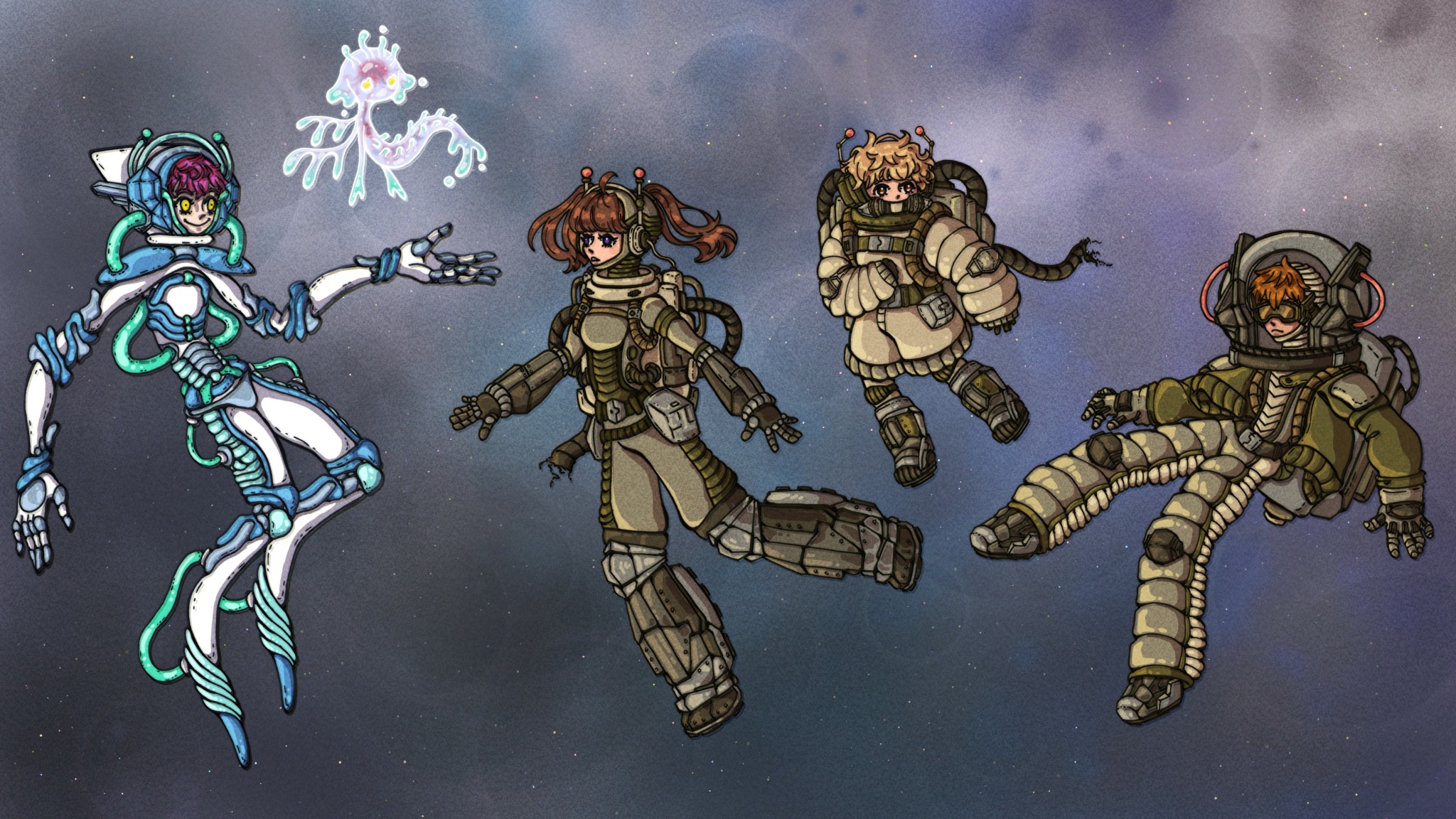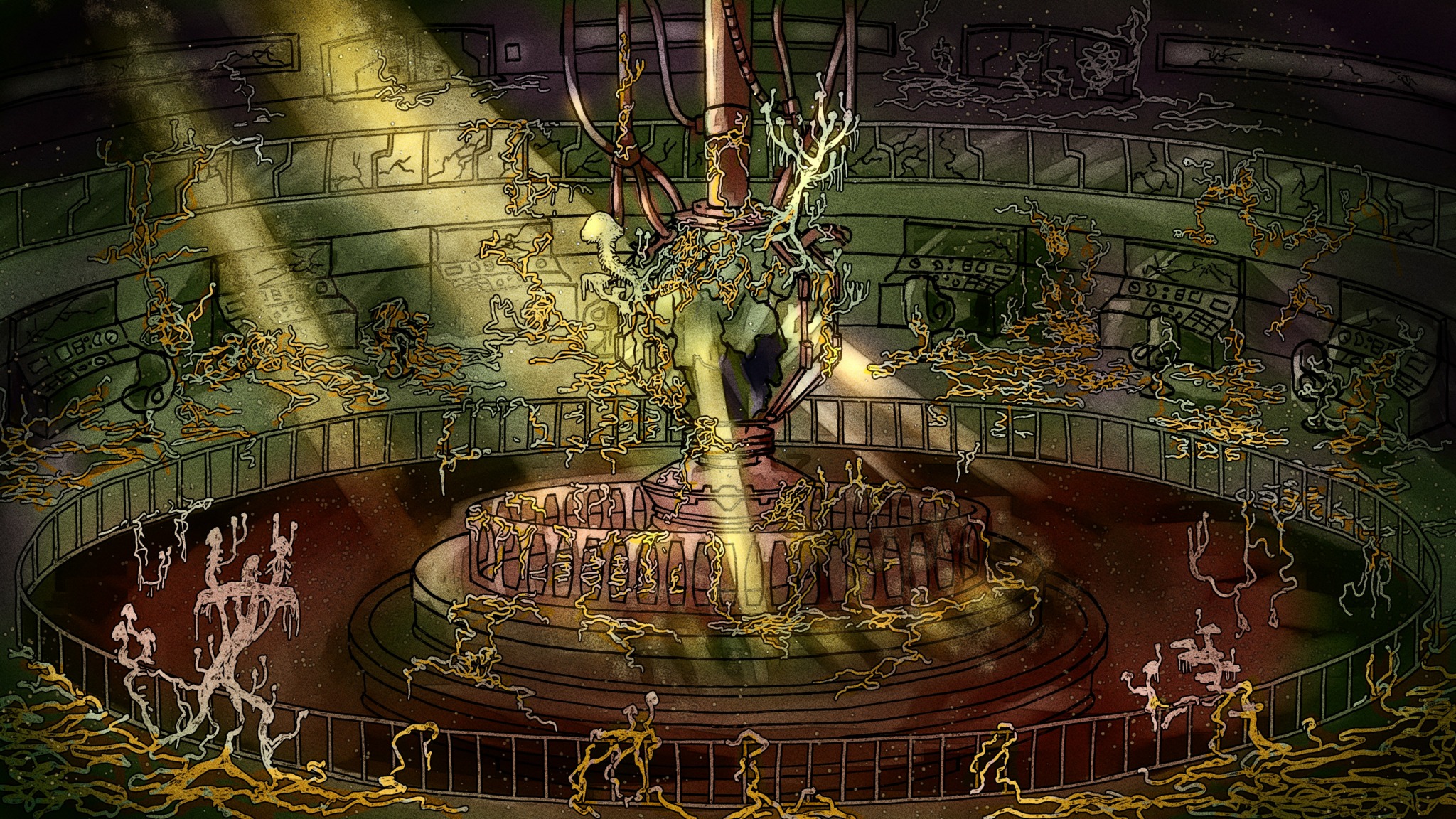Alright – so today we’ve got the honor of introducing you to Brooke Daub. We think you’ll enjoy our conversation, we’ve shared it below.
Brooke, looking forward to hearing all of your stories today. When did you first know you wanted to pursue a creative/artistic path professionally?
I have been drawing for as long as I can remember, starting as early as four years old. It was always something I enjoyed doing and felt like I excelled at, as was evident in my elementary school assignments and art projects; I remember spending lots of time trying to make my drawings as good as possible. This passion stuck with me throughout middle school as I continued to grow as an artist both through my art classes at school and through drawing in sketchbooks at home.
I also developed a love for video games in my elementary school years as well when my sister and I were finally allowed by our parents to get a Nintendo Gamecube, and were gifted a Wii by our grandparents a few years later. I had a particularly strong connection to the Legend of Zelda series, and ended up playing as many Zelda games I could get my hands on. So for my twelfth birthday, my neighbor gifted me a green hardbound book all about the Legend of Zelda: a book called Hyrule Historia.
Inside the book was about a hundred pages of concept artwork for most of the main title Zelda games, with a longer section in the front dedicated to the most recent release in the series, Skyward Sword. I was completely enamored by the concept artwork; it was so interesting to me to be able to get a glimpse into the artistic processes of some of my favorite games. I previously had no idea concept art was even a thing, much less something you could do as a job. This was an extremely pivotal moment for me as I remember flipping through the pages time and time again thinking “I want to do that.” I loved creating characters and stories, my inspiration usually coming from playing those games, so realizing that you could make a career out of that was very exciting for me.
As I entered high school I started to take art more seriously, and took art classes as my electives pretty much every year. Around my sophomore year, classmates started talking more seriously about career paths, as it was getting closer to start applying for colleges. I remember feeling conflicted for a while about what I wanted to do with my own career, because while I did well academically at school, none of the traditional career paths really spoke to me; all I really liked doing was drawing and playing video games. Since being introduced to concept art through the Hyrule Historia book I had had a lofty goal of one day working for Nintendo on a Zelda game, but as I had grown a bit older I had abandoned that dream somewhat as I knew realistically it was very unlikely to happen. Therefore I had mostly dismissed doing art as a career in high school, especially since all of my friends, even those that were in the high school art classes with me, were choosing more traditional career paths.
But then our art class had a visit and presentation from the Savannah College of Art and Design (SCAD), and it reminded me that maybe I could create concept art for a living. I think that initially the influence from others around me made me think that pursuing art as a career wasn’t viable for me, but as I tried to consider other career options and college majors in my latter high school years, the more I realized that I couldn’t see myself happy doing anything else as a job other than art. That is when I seriously decided I was going to art professionally. I ended up visiting and applying to SCAD my junior year. I was accepted, and started classes in Fall of 2019. I have since graduated and have a BFA in Illustration with a Concentration in Concept Art for Games and Animation.

Awesome – so before we get into the rest of our questions, can you briefly introduce yourself to our readers.
I was born and raised in Jacksonville, Florida and am currently living there now after finishing college. I have always had a very active imagination, so since I was a young child I have been creating elaborate stories and characters in my head for fun. Art was always something that came naturally to me; I specifically liked drawing people so whenever I would draw in my free time as a child I would always draw new characters.
I am heavily inspired by the sci-fi, fantasy, and horror genres, which are most prevalent in my art. When I started to have a greater understanding of different career paths within the creative sphere, concept art is what really spoke to me, especially concept art for video games, so that is what my work focuses on most predominantly now: creating curated projects for potential video game ideas, usually including character and environment concept art as well as keyframe illustrations exploring the world and story I have created.
As a concept artist, the most important thing is being a visual problem solver. Concept art is where all games and animations start: it is our job to be able to create a multitude of interpretations and iterations of characters, creatures, environments, and assets in order to ultimately solve the problem that the prompt or project is asking. Something I pride myself on is being able to create unique and interesting solutions for design problems. My favorite thing to design is characters and creatures that are original and compelling. My style varies by the genre and subject matter of any given project; being able to work in a range of different styles helps me stay more versatile and marketable to a wider range of games and animation mediums. I have created work that is more heavily stylized and cute, but I also have work that is detailed and more grotesque. I love being able to switch up what style I am working in frequently because it keeps me motivated and inspired.

We often hear about learning lessons – but just as important is unlearning lessons. Have you ever had to unlearn a lesson?
The biggest lesson I’ve had to unlearn is definitely my perfectionism. Even as a child, I would remember getting remarks from my teachers that while although I always created beautiful work, it took me a long time to do so. I’ve always been a slower artist than most of my peers, and it was definitely because of my need to make everything perfect. This perfectionism didn’t just apply to my artistic endeavors, but affected every aspect of my academic life as a teen. While I could sustain it for a while because I had less on my plate, college made me have to reckon with this bad habit that I had been perpetuating for years. I suddenly didn’t have the same time to spend fretting over minute details in my artwork, or else I wouldn’t be able to finish my work on time.
I remember a professor saying something to one of my classes that you can’t always give 100% of yourself in every project, and that giving 80% and getting it finished is better than giving 100% but not finishing in time. Hearing this really made me come to terms that my perfectionism was ultimately holding me back rather than helping me move forward. I had to remind myself that things like my line art not being perfectly smooth and seamless in an illustration was something that only I would be noticing. Narrowing my focus more directly on concept art helped me shake my perfectionist habits as well. At its core, concept art is about selling just that: a concept. Successful concept art isn’t which piece is the most refined and beautifully rendered, it’s about which design solves the project’s visual problems the best. I realized that I enjoyed this part of the artistic process better as well– I preferred sketching, thumbnailing, and iterating over making fully detailed illustrations. Going in with this mindset really helped me let go of most of my perfectionist habits.
Have I fully gotten rid of every ounce of perfectionism in my body? Of course not. There is still some merit in wanting to make your artwork the best it can be. But I now know that there is a time and place for it, and am able to more easily discard perfection for efficiency when needed.

What do you find most rewarding about being a creative?
It might seem a little cliche, but one of the most rewarding aspects of being an artist for me is to be able to share my work with other creatives and have it be received well. While it still feels nice to receive compliments and praise from people like my parents or other non-artists, good feedback feels different when it’s given by fellow artists because they have a deeper understanding of the work that goes into creating an illustration, character design, etc., especially a successful one.
I used to be private with my work, especially when I was a teen, because I drew a lot of things that weren’t as palatable to non-artists, such as horror imagery and generally more “strange” or “weird” subject matter. So attending art school was liberating in that I felt less reserved to show my artwork, without the fear of judgment or having to explain myself as to why I drew what I did. This made positive feedback to my art more meaningful to me. And it feels just as rewarding to reciprocate positive and constructive feedback to others; while in school I always looked forward to critique because I loved to see what my peers were creating for a given project, and also it was an opportunity to uplift and help each other grow as artists through feedback with each other. Even outside of a school setting, being able to share your art and receive a positive reception to it is a wonderful thing to have, and I am grateful to be a part of various communities of artists for that reason.
Contact Info:
- Website: https://kiecieeart.wixsite.com/kieciee
- Linkedin: https://www.linkedin.com/in/brooke-daub/





